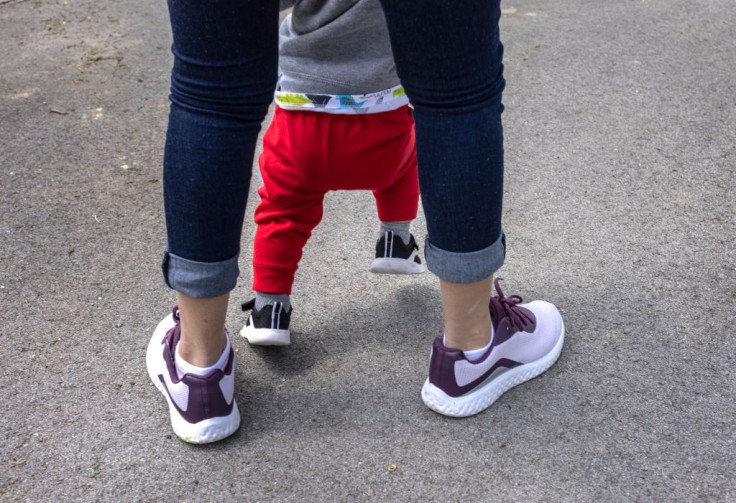
The occasion of your toddler taking their first steps is an important milestone. It marks a special moment as the child commences on their journey towards self-determination and exploration of the world around them.
However, it also means the onset of a new phase filled with adventures and possible dangers for both of you.
5 Things To Keep in Mind as Your Toddler Starts to Walk
- Babyproofing (again): Even if you were previously babyproofed for crawling, walking opens up new areas of exploration. Check low-hanging drawers and cupboards for possible dangers, especially in the kitchen. If you have stairs, consider installing safety gates to avoid mishaps, and teach the child how to safely navigate them.
- Choosing the right shoes: While walking barefoot is advantageous for foot growth, shoes are required when out and about. Guarantee proper shoe fit to support healthy foot growth, preventing sizes that are too large or too small.
- Changes in sleeping patterns: As your child becomes more active, their sleep patterns may change temporarily. Stick to constant bedtime habits and encourage daytime play to help manage their sleep.
- Avoiding baby walkers: Health professionals suggest against using baby walkers due to possible developmental delays and safety concerns.
- Accepting falls as part of the learning process: Falls are unavoidable as a child learns to walk, but they are usually minor. However, be cautious for signs of severe injury, such as drowsiness or enormous inflammation, and look for medical attention if needed.
Parental Worries Arising When Their Child Begins Walking
Around six or seven million years ago, our ancestors made a significant leap in evolution by standing upright and walking on two feet. Similarly, your baby's early steps can feel just as monumental for both you and your child.
According to child psychologist Carol Baicker-McKee, Ph.D., this transition to walking signifies a broader perspective for children and marks a symbolic step towards growing up.
It's understandable why parents often have concerns about this developmental milestone. Questions like whether their baby will walk on time, concerns about athletic ability, or worries about issues like pigeon toes are common.
- My Baby Is Slow to Crawl: While most children follow a typical progression of development including rolling, sitting up, crawling, and walking, some may skip crawling altogether. Factors like changes in sleep positions may influence crawling patterns. Although crawling isn't necessary for typical development, it's essential for developing core muscles. If your child shows signs of favoring one side or lacks coordination, consult a doctor.
- My Baby Is Late to Walk: The timeline for walking differs greatly among children, with some starting as early as 8 months and others as late as 17 months. Late walking doesn't necessarily indicate future coordination or intelligence issues. However, pediatricians usually evaluate children who aren't walking by 18 months to rule out underlying problems. Encouraging confidence and providing support through walking aids can help.
- My Baby Walks With a Funny Stride: It's common for toddlers to have bowed legs or walk with their feet turned inward or outward initially, which usually corrects itself by age 3. Persistent toe-walking may require attention, as it could be related to issues like short Achilles tendons. While toe-walking has been associated with developmental concerns like autism, most cases don't indicate a serious problem unless accompanied by other delays.
Understanding these common concerns can help parents navigate their child's walking development with confidence and support.
Related Article: When Do Babies Start Walking? Heartening and Patience in Parenthood